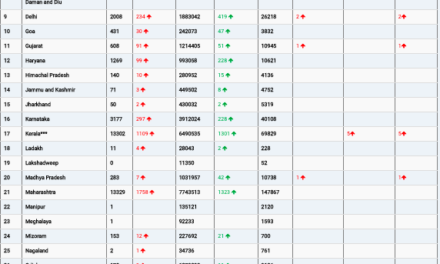In a surprising decision, Japan’s Pharmaceuticals and Medical Devices Agency announced on January 2, 2025, the approval of tecovirimat, also known as TPOXX, for treating mpox, smallpox, and cowpox. The approval has sparked global debate, as the drug recently failed in two major clinical trials assessing its efficacy against mpox.
Tecovirimat initially gained attention as a potential treatment for mpox, a painful and sometimes fatal disease currently prevalent in sub-Saharan Africa. Early animal studies showed the drug prevented death in monkeys exposed to lethal doses of mpox and smallpox virus, leading to approvals in the European Union (EU) and the United Kingdom in 2022. However, subsequent trials in humans—the PALM007 trial in the Democratic Republic of the Congo (DRC) and the STOMP trial across multiple countries—found no measurable benefits in mpox patients.
Conflicting Evidence
The PALM007 trial, involving 600 participants, showed no difference in healing times, mortality rates, or viral load between patients receiving tecovirimat and those on a placebo. Similarly, the STOMP trial, which enrolled 75% of its target 719 participants before being halted, demonstrated no improvement in lesion healing times or overall efficacy. “This is pretty convincing evidence that when used alone, it’s not going to be efficacious,” said Timothy Wilkin, chair of the STOMP trial and an infectious disease specialist at the University of California San Diego.
Despite these findings, Japan approved the drug based on 15 earlier clinical trials that involved healthy volunteers and demonstrated safety, but not efficacy. SIGA Technologies, the drug’s manufacturer, claims preliminary analyses of the PALM007 trial suggest potential benefits for patients with severe disease or those who seek treatment early—claims that experts argue lack statistical significance.
International Response
The decision has left experts puzzled. Jason Zucker, co-lead of the STOMP trial and an infectious disease specialist at Columbia University, called the approval “very confusing,” while DRC epidemiologist Placide Mbala expressed curiosity about the studies considered by Japanese regulators.
In Europe, regulatory agencies are re-evaluating their stance. The European Medicines Agency (EMA) has stated it will “scrutinize” data from both the PALM007 and STOMP trials. The U.K.’s Medicines & Healthcare products Regulatory Agency (MHRA) also confirmed that all exceptional approvals undergo annual review.
“This Japan approval was a shocker to me,” said John Rizk, a pharmacology researcher at the University of Maryland, who co-authored a recent report on mpox therapeutics. Rizk believes European agencies should at least issue warnings to healthcare providers about the drug’s limited efficacy in mpox treatment.
A Questionable Future
Tecovirimat’s approval in Japan raises questions about its broader use, including its status as a smallpox treatment. The U.S. Food and Drug Administration (FDA) initially approved the drug in 2018 under the “Animal Rule,” which allows drugs to be approved for conditions where human efficacy trials are infeasible, such as eradicated diseases like smallpox.
FDA has defended the drug’s approval for smallpox, emphasizing that mpox trial failures do not necessarily indicate ineffectiveness against smallpox. SIGA Technologies argues that tecovirimat’s success in monkey studies supports its potential for smallpox. However, experts like Wilkin are skeptical. “I would not feel comfortable counting on its efficacy,” he said, adding that the drug’s approval was driven by the need for a bioterrorism countermeasure.
As global scrutiny intensifies, Japan’s decision highlights the complex balance between urgency, scientific evidence, and regulatory processes in public health decision-making. For now, the controversy surrounding tecovirimat leaves many questions unanswered, with scientists and regulators watching closely for further developments.












